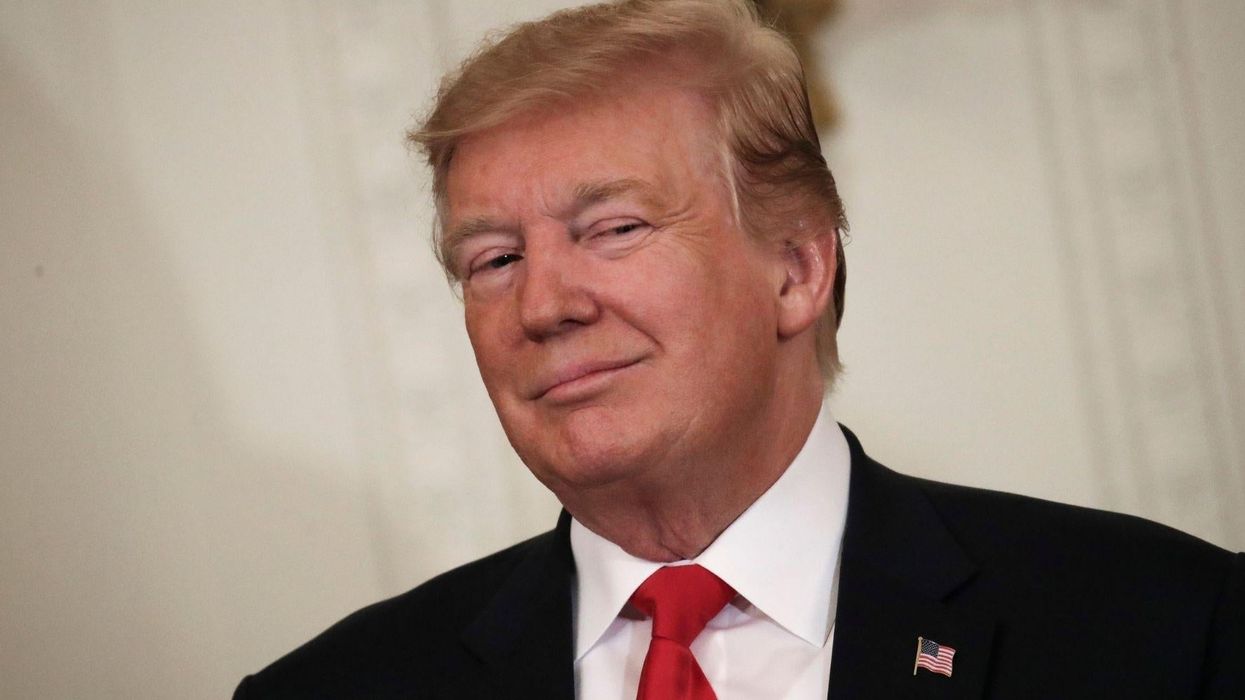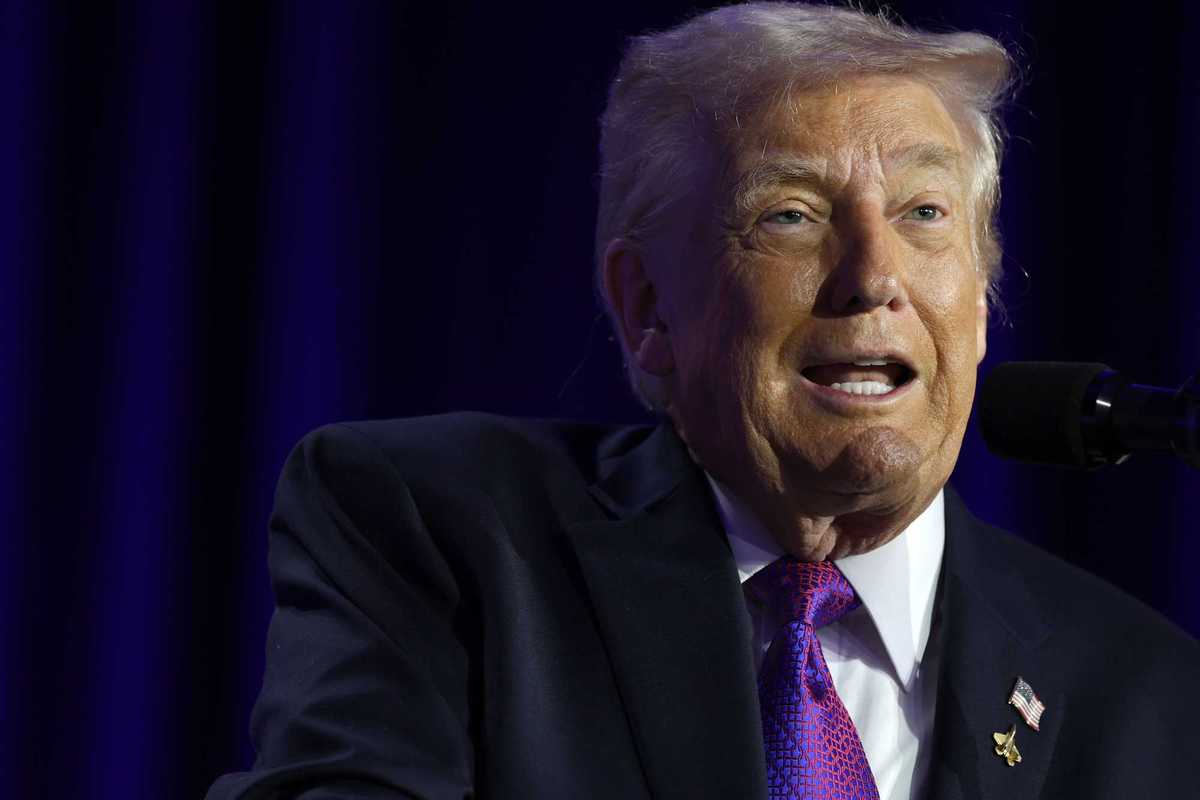James Besanvalle
Oct 25, 2020
Back in 2016, the odds were stacked against Donald Trump winning the US election.
Polls across the board placed Hillary Clinton in the lead to win – anywhere from between 70 per cent to as high as 91 per cent.
Yet, Trump won the 2016 election.
Similarly, the 2020 election race shows Joe Biden continues to lead in most nationwide opinion polls.
So could the same thing happen?
Well – as the 2016 election result proved – it’s impossible to predict but there are some alarming similarities between Trump’s 2016 election campaign and his 2020 re-election bid.
From talking about the same policies, bringing up the same distractions and analysing similar trends it’s possible we’ll see the POTUS return for a second term.
So here’s what’s similar:
1. 'Emails'
In 2016, Trump continually brought up Hillary Clinton’s email controversy – ultimately nicknaming her “Crooked Hillary” because of it.
Essentially, the former First Lady used a private email server for official public communications rather than using official State Department email accounts maintained on secure federal servers.
Last year, the US State Department investigated the controversy and found “there was no persuasive evidence of systemic, deliberate mishandling of classified information.”
But during the 2016 election, Trump was absolutely obsessed with bringing it up.
In fact, looking back on why she lost the election, Clinton said:
I was on the way to winning until the combination of Jim Comey’s letter on October 28.
This letter notified Congress that the FBI would review additional emails in connection with an investigation into her personal email server.
It now appears Trump is trying to do the same with Joe Biden and his son Hunter:
The unverified New York Post story alleges then-Vice President Biden’s son attempted to introduce his father to a top executive at a Ukrainian company Hunter Biden worked for.
Trump has repeatedly tried to bring up the controversy in his 2020 election campaign:
2. Drug testing
In 2016, Trump demanded Hillary Clinton get a drug test before their third and final debate.
At the time, he said at a rally in Portsmouth, New Hampshire:
We should take a drug test prior to the debate because I don’t know what’s going on with her. But at the beginning of her last debate, she was all pumped up at the beginning. And at the end … she could barely reach her car. I'm willing to do it.
Trump made the same demand of Joe Biden in September:
3. ‘Lock them up’
Donald Trump continually called for Hillary Clinton to be locked up, investigated and indicted in 2016 (and ever since, too).
For example, during their second debate, Trump threatened:
If I win, I am going to instruct my attorney general to get a special prosecutor to look into your situation – there has never been so many lies and so much deception.
And he’s not shying away from doing the same to Joe Biden this time around.
At a rally in Macon, Georgia earlier this month, Trump said:
Lock up the Bidens. Lock up Hillary.
We've learned over the last couple of months: Joe Biden is a corrupt politician and the Biden family is a criminal enterprise.
The POTUS’ other favourite thing to do is to spur on his rally attendees when they chant “lock him/her up”.
4. Health trolling
Health Trolling is when someone judges or shames another person for their health.
Trump did it in 2016 when his campaign released an ad warning that Clinton “doesn’t have the fortitude, strength, or stamina to lead in our world”.
At a rally in October 2016, he also imitated Clinton stumbling as she left a 9/11 memorial after feeling “overheated”.
Trump mocked at the time:
Here’s a woman—she’s supposed to fight all of these different things—and she can’t make it 15 feet to her car, give me a break.
Trump has done the same to Joe Biden with his continual questioning of his health. He repeatedly questions whether Biden has dementia and constantly refers to him with the nickname “Sleepy Joe”.
5. A ‘rigged’ system
In 2016, Trump suggested the election would be “rigged” and unfair.
He said at the time:
I'm afraid the election is going to be rigged, I have to be honest.
He later added:
I hope the Republicans are watching closely or it's going to be taken away from us.
This sentiment is something he’s ramped up during the current global pandemic by claiming mail-in ballots are going to be “fraudulent”:
Twitter has even had to take down tweets from the POTUS for spreading misinformation about mail-in votes.
6. Stoking racial tensions
Donald Trump has long been accused of stoking racial tensions in the US.
In the lead up to the 2016 election, Trump infamously said:
When Mexico sends its people, they're not sending their best. They're sending people that have a lot of problems, and they're bringing those problems with us. They're bringing drugs. They're bringing crime. They're rapists.
It’s something he’s (unfortunately) not grown out of.
This year, he’s referred to coronavirus as the “Kung Flu” or the “Chinese virus”.
But one of the most noteworthy exchanges came in the first presidential debate with Joe Biden when Trump refused to denounce white supremacists – instead telling them to “stand back” and “stand by”.
Trump also called New York City's decision to paint "Black Lives Matter" on Fifth Avenue as "a symbol of hate".
7. Opinion polls
In October 2016, Hillary Clinton had a 10-point lead over Donald Trump. Similarly, Joe Biden in October is leading over the POTUS by 11 points – both according to NBC News/Wall Street Journal polls.
Trends with the debate performance opinion polls are also similar between 2016 and 2020.
After each debate, Hillary Clinton’s approval rating improved, while Trump’s declined – just like it’s been doing for Biden in 2020.
There’s one important difference though that is likely to strengthen the case for a Biden victory on 3 November – at 53 per cent, Biden is already five points higher than the 48 per cent Clinton got in the final 2016 tally.
Biden is also more likeable on average than Clinton was at this point in her campaign four years ago.
As it currently stands, 43 per cent say they have positive feelings towards Biden, while 42 per cent say they have negative feelings.
While at this point in 2016, Clinton had 40 per cent positive and 50 per cent negative.
The election is due to be held on 3 November.
Top 100
The Conversation (0)














